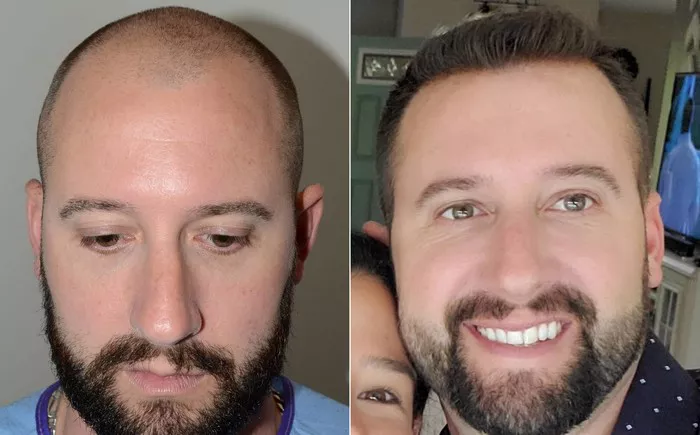Hair transplantation has emerged as a viable solution for individuals grappling with hair loss. One common question that arises in the minds of those considering this procedure is whether transplanted hair falls out permanently. This article aims to shed light on the intricacies of hair transplants and address the permanence of the results.
The Basics of Hair Transplants:
Hair transplantation is a surgical procedure that involves moving hair follicles from one area of the body, known as the donor site, to a bald or thinning area, referred to as the recipient site. This technique is predominantly used to treat male pattern baldness but is also employed in cases of female pattern baldness and other types of hair loss.
Understanding the Hair Growth Cycle:
To comprehend the permanence of transplanted hair, it’s crucial to understand the natural hair growth cycle. Hair follicles go through phases, including anagen (growth), catagen (transitional), and telogen (resting). The transplanted hair initially undergoes a shedding phase, mimicking the natural cycle, before entering a regrowth phase.
Permanence of Transplanted Hair:
The good news for individuals considering hair transplants is that the transplanted hair is typically permanent. The reason behind this permanence lies in the fact that the hair follicles used for transplantation are typically resistant to the effects of dihydrotestosterone (DHT), the hormone responsible for shrinking hair follicles in androgenetic alopecia.
Factors Influencing Transplant Success:
While the transplanted hair itself tends to be permanent, the overall success of a hair transplant procedure depends on various factors. The surgeon’s skill, the quality of the donor hair, and the patient’s commitment to post-operative care all contribute to the longevity of the results.
Choosing a Skilled Surgeon:
The expertise of the surgeon plays a pivotal role in the success of a hair transplant. A skilled and experienced surgeon ensures that the transplanted follicles are placed strategically, considering natural hair patterns and angles. This meticulous approach enhances the likelihood of successful graft survival and long-term results.
Quality of Donor Hair:
The donor site, usually located at the back or sides of the scalp, provides hair follicles that are genetically resistant to DHT. These follicles are less susceptible to the factors that cause hair loss. The quality and density of the donor hair significantly influence the aesthetic outcome and overall success of the transplant.
Post-Operative Care:
Following a hair transplant, adherence to post-operative care instructions is crucial for optimal results. This includes avoiding strenuous activities, protecting the scalp from direct sunlight, and following the prescribed medication regimen. Patients who commit to proper aftercare are more likely to experience successful and lasting outcomes.
Natural Aging Process:
While transplanted hair is generally permanent, it’s important to note that the natural aging process continues. As individuals age, they may experience further hair loss or thinning in areas surrounding the transplanted hair. This natural progression necessitates ongoing maintenance and, in some cases, additional procedures to address new areas of concern.
Limitations of Hair Transplants:
Despite the positive aspects, it’s essential to acknowledge the limitations of hair transplants. Individuals with extensive hair loss may not have a sufficient donor supply to achieve desired density. Moreover, unrealistic expectations regarding the outcome can lead to dissatisfaction. A thorough consultation with a qualified surgeon can help manage expectations and determine the feasibility of the procedure.
See Also: The Optimal Age for Hair Transplant: A Definitive Guide
Conclusion:
In conclusion, transplanted hair is generally permanent, thanks to the resilience of the donor hair follicles against DHT. However, the overall success of a hair transplant is influenced by various factors, including the surgeon’s skill, the quality of donor hair, and post-operative care. Individuals considering a hair transplant should seek consultation with a reputable surgeon to discuss their specific case, set realistic expectations, and understand the potential for long-lasting results. With advancements in hair transplant techniques and careful consideration of individual factors, individuals can confidently embrace the prospect of regaining natural-looking, permanent hair.


